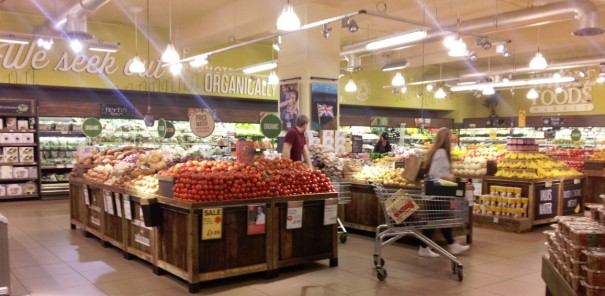What Do Shoppers Want in Their Food?
Sitting in a café sipping a decaffeinated almond milk latte and reading the weekend edition of The Times, it’s easy to think that Europeans have crossed The Rubicon when it comes to food eating. Food journalists are lyrical on the need for our food to be sustainable, green, local, and ethical. But does our ethical food purchasing behaviour stack up in the grocery aisles?
In the UK, consumer expenditure on ethical food and drink products increased by 10 times between 1999 and 2014 and, now, comprises around 8% of total food and drink purchases – ethical here is a tad controversial as it bundles organic, Fairtrade, Rainforest Alliance, vegetarian meat alternatives, animal welfare-friendly, etc. all together to come up with a “green” bundle. It doesn’t mean that conventional food is identifiably non-ethical but indicates that consumers, from pretty much a standing start 15 years ago, are increasingly asking for much more to be included in the food they buy than they did in the past.
The top five North American culinary restaurant themes for 2015 are distinctly green in hue emphasizing:
- environmental sustainability – e.g. Chipotle with its claim of “food integrity”, and supporting local farms;
- natural ingredients – e.g. Carl’s Jnr. with the “All-Natural Burger: no antibiotics, no steroids, free range”;
- hyper-local sourcing from urban hydroponic farms and from the local shore and ponds;
- minimum food waste – good for the environment, restaurant profit, and reducing customers’ guilt. This includes root-to-stem/nose-to-tail cooking and eating (you know scoffing all of the hog including the squeal!);
- and gluten-free cuisine – 7% of North Americans are sensitive to gluten but a massive 63% believe that gluten-free diets are better for their physical and mental health.
An USA National Restaurant Association survey of restaurant protein trends links to these overall themes with the Top 5 being:
- locally-sourced meat and seafood;
- new, lower cost cuts of meat – e.g. shoulder/butt of pork for pulled pork dishes; flat iron steak from beef chuck;
- sustainable seafood – with 3rd Party endorsement, such as Marine Stewardship Council;
- “non-traditional” fish and seafood – to “save” over-fished species such as cod, Pollock is presented as a “greener” alternative; or farmed fish being given a benign make-over instead of dwindling stocks of wild-caught;
- grass-fed beef – e.g. A&W’s grass-fed burger!
These green shoots are discernible across the globe. Australians are increasingly looking for local in the food products they buy and see the foods they eat being connected more closely to their local communities – 55% of Aussies think that buying locally sourced food is very important to them, up 10% from 4 years ago, and 85% of them much prefer fresh food to be sourced locally or, at least, nationally. There is a clear message to retailers, here: shopper loyalty will be higher for stores that support local farmers and businesses, support the local economy and minimize environmental impacts.
So, green is the way to go. But, hold steady a moment. Recent UK consumer surveys on food purchasing shows that price and the attractiveness of promotions are far and away the two most important factors influencing purchase behavior, followed by quality and taste, and healthiness. Ethical/eco-friendly is only in 10th place! Consumers’ ethical aspirations are modified by raw economic necessity (sales of organic food slumped in the UK during the recent recession). Don’t forget, too, that some foods are essentially addictive and I doubt that consumers are struggling with ethical dilemmas when they buy a Mars Bar, Snickers, or Magnum icecream!
Bottom line: consumers are and will increasingly ask more of those who produce and retail their food. Whether it be local, animal welfare-friendly, environmentally sustainable, chemical-free or whatever, the green bar is rising inexorably. Consumer citizens will have their way and they won’t pay a premium for more ethical food, they’ll simply discount those that fail to meet their ever-rising expectations about the food they feed their families.


No comments:
Post a Comment